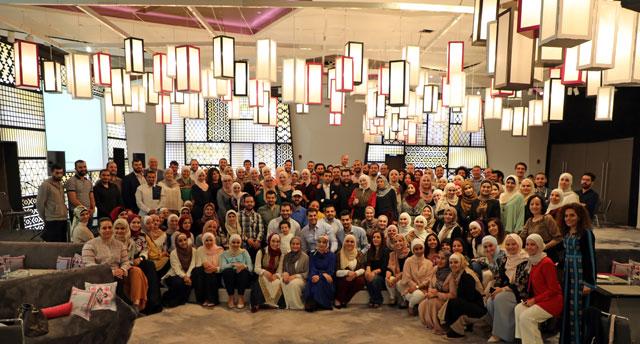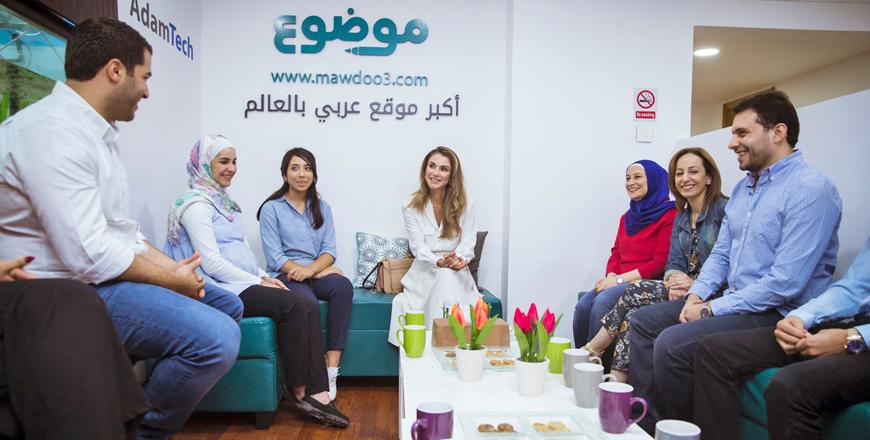You are here
Arabic and other languages on the web
By Jean-Claude Elias - Aug 16,2018 - Last updated at Aug 16,2018
Despite the steadily growing use of the Arabic language on the Internet, it remains limited. Moreover, according to some statistics there is a disproportion between the use of the language in the real world and its use on the web. Others disagree and find no disparity in the numbers.
For example, the International Telecommunications Union estimates that “less than 1 per cent of the language on the Internet is in Arabic”, but statista.com puts the number at 4.8 per cent, just after English, Chinese and Spanish, with the lion’s share going to English, of course, at about 26 per cent of the total. Considering that Arabic is spoken by a little more than 4 per cent of the world’s population today, Statista’s estimate, if the correct one, would make more sense and would be more balanced with reality.
In informal writing, and for more than 20 years now people have used numbers to replace the Arabic letters that do not have an equivalent in the Latin alphabet, mainly the numbers 2, 3, 7 and 9. You would for example write “mar7aba” for “hello”, or “Ras Al 3ain” instead of “Ras Al ‘Ain”. This informal syntax is sometimes called Arabish or Arabic chat, and is commonly used in quick texting and messaging. In proper or formal writing Arabish is not acceptable, understandably. Hence the growing number of websites and size of contents on the web written with the Arabic alphabet. Purists can rejoice.
From e-shopping to engineering, arts, medical information and everything in between, you can now search in Arabic and find the contents you are looking for in the same language. Nothing can replace or beat an Internet experience in your native language.
It is worth noting that what is currently considered to be the most visited fully Arabic site in the world is the brainchild of two Jordanian creative entrepreneurs: Mohammad Jaber and Rami Al Qawasmi. The website is mawdoo3.com (“mawdoo3” means “subject”). Recent figures on Google indicate that it receives an average exceeding 17 million visitors per month. Only the domain name mawdoo3.com is written using the above mentioned Arabish syntax. Once inside everything is in pure Arabic.
“Mawdoo3.com is on a mission to help fill the void of reliable digital Arabic content with high editorial standards” (source: endeavorjordan.org). It tackles health, nutrition, entertainment, love, sports, education, arts, family matters, etc.
Popular websites that are Middle-East based or that were launched in the region are nothing new. There are a few world-scale success stories of such achievements. We all remember the famous maktoob.com, the online services company founded by Samih Toukan in 1998 and that Yahoo purchased later. Another similar story is that of souq.com, the largest e-commerce retailer in the Arab world and that was co-founded by Syrian businessman Ronaldo Mouchawar, besides, a veteran of maktoob himself.
As great and successful as they may be, and as proud of them the Middle East may be, maktoob and souq (now an Amazon company…) do not particularly focus on the Arabic language. On the other hand mawdoo3 does.
The importance of the language question on the Internet cannot be overestimated. The implications are many and far-reaching. They concern culture, politics and countless other aspects of living on the web and consequently of living in the real world. The French for example are fighting with all their might to reduce the hegemony of the English language on the net. The French language is only seventh in the list provided by statista.com, whereas Arabic is fourth.
It would be interesting to see if the ranking of the most used languages on the web would change over the years to come. After all the net has already been in global use for 27 years now, and it has therefore had the time to build its own inertia. A major language change is unlikely.
Related Articles
AMMAN — Jordan’s Mawdoo3.com announced on Monday that it has secured a total of $23.5 million in funding after the addition of $10 million t
AMMAN — Her Majesty Queen Rania visited the offices of Mawdoo3.com on Tuesday, where she met with the co-founders of the Arab world’s first
AMMAN — Rami Qawasmi, partner and founder of mawdoo3.com, Jordan’s largest Arabic content site said that the company succeeded in attracting

















